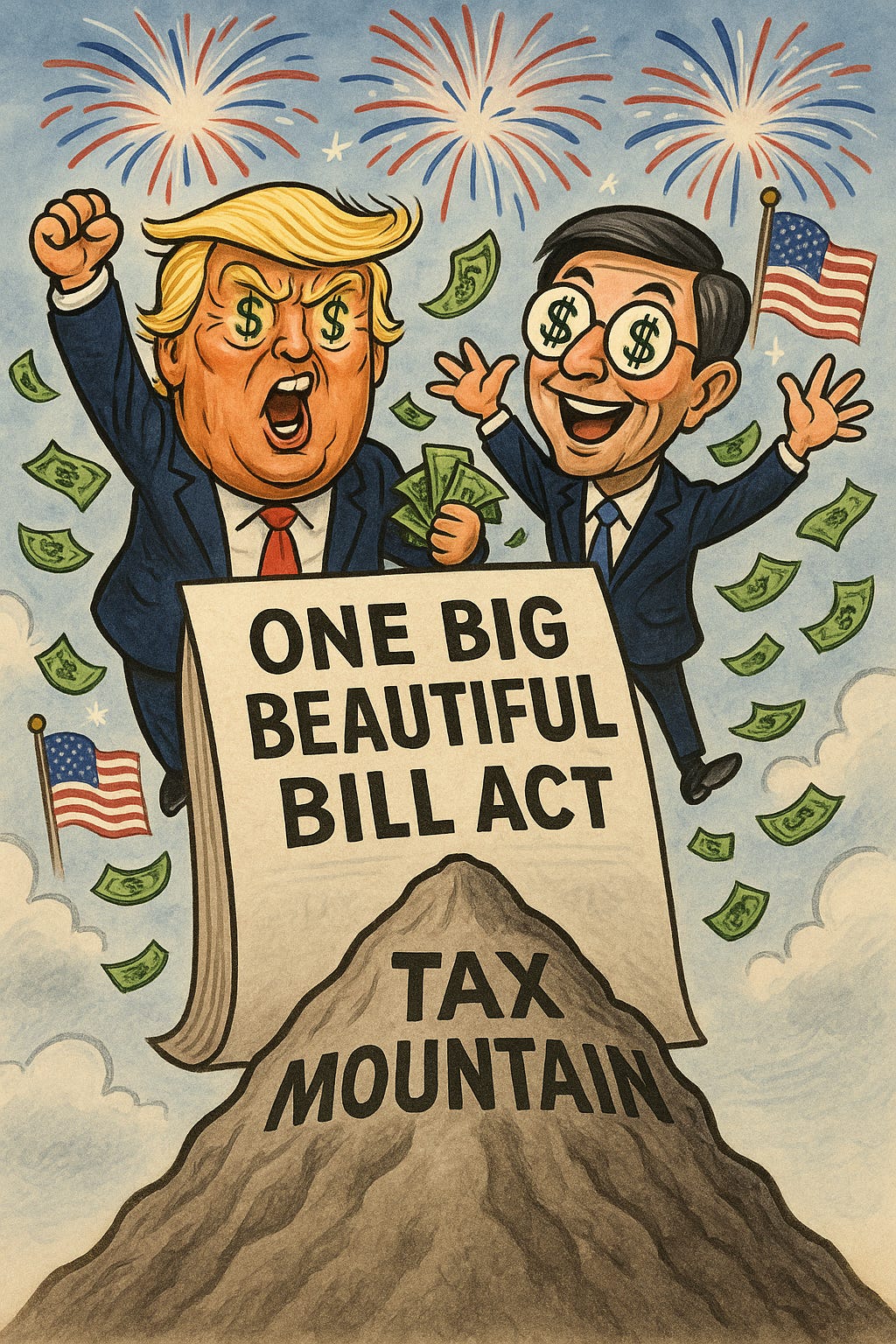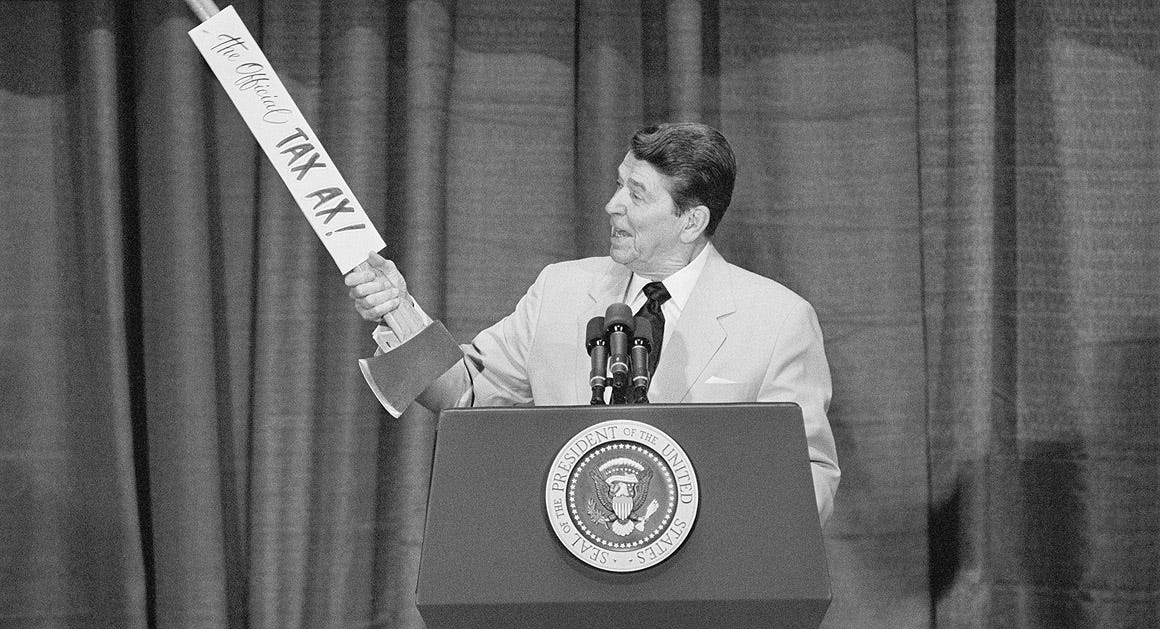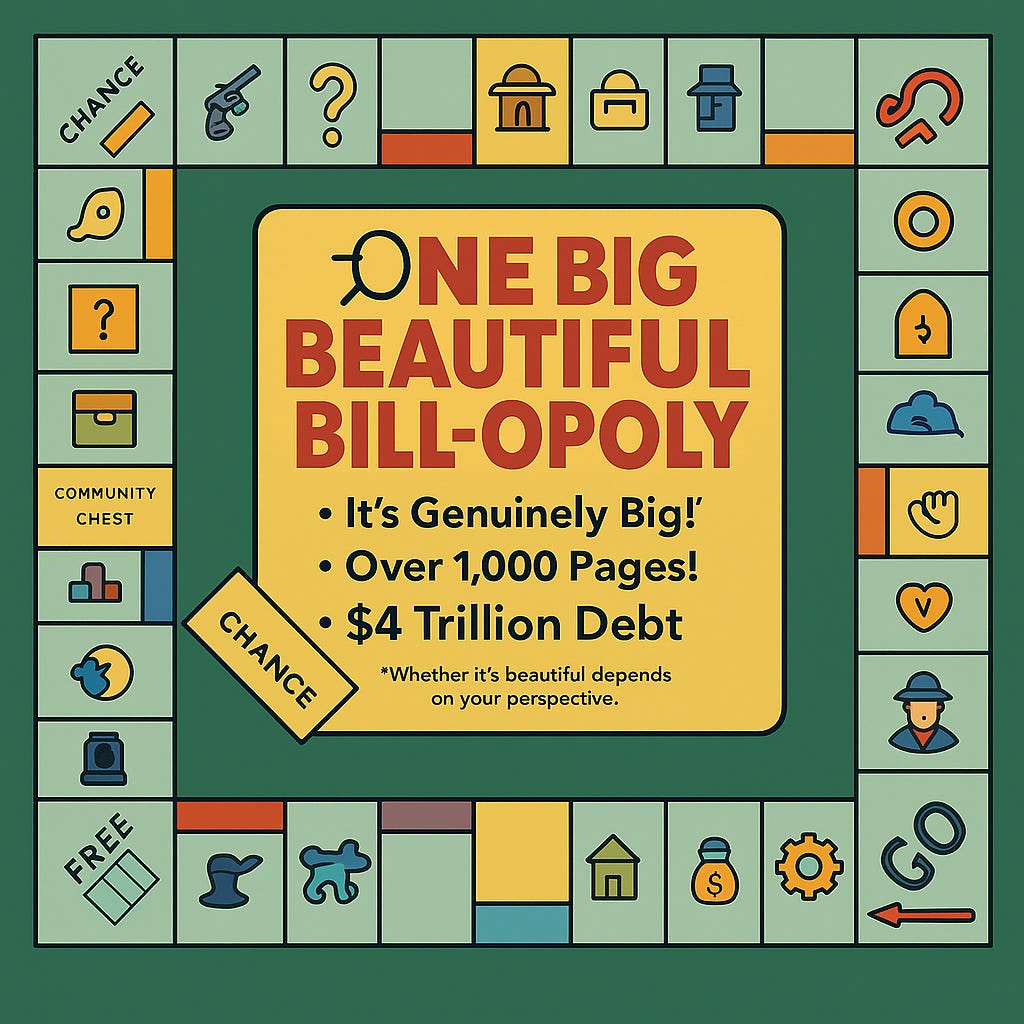Is Any Big Tax Bill Really 'Beautiful?'
Republicans are betting their needlessly complicated tax legislation will make this Independence Day great again
Americans hate taxes. We always have.
Our nation's independence story is literally forged in opposition to taxation — first without representation, then even with it. We wanted representation, got it, and when our representatives taxed whiskey, we still rebelled. The Whiskey Rebellion proved that Americans just don't like being taxed, period.
Flash forward more than 230 years: Republicans hope to celebrate passage of the longest, most complicated tax bill in modern history by Independence Day. President Trump calls it "one big beautiful bill." Its official name is the “One Big Beautiful Bill Act.” Will Americans join the celebration?

When Taxes Had Their Moment
Taxes were successfully rebranded exactly once in American history: World War II. Through patriotic messaging — even Walt Disney rallied Donald Duck to encourage tax payments (Taxes to defeat the Axis) — Americans embraced their civic duty. In 1944, incomes over $200,000 faced a 94% tax rate, and people paid up for the war effort.
Then came the 1960s. President Kennedy proposed tax cuts, President Johnson delivered them. President Reagan slashed taxes deeper, President Bush cut taxes more, even President Obama cut taxes. But spending cuts rarely followed. Today, we're left with taxes that don't cover spending, while a multi-billion-dollar lobbying industry fights over who pays what.
One Big, Beautiful Mess
Republicans call it the largest middle-class tax cut in history. Democrats call it a $4 trillion debt bomb. At more than 1,000 pages — longer than Obamacare, nearly twice the length of Trump's 2017 tax law — it's genuinely big. Whether it's beautiful depends on your perspective.
The bill's policy decisions are incoherent.
Some lucky winners: Gun silencer buyers (who's been waiting since 1934 to eliminate that now $200 tax?), tanning salon owners (goodbye 10% ACA tax), American car buyers (those who make less than $500K a year can deduct interest on their car loan until 2028), and new parents (hello "Trump accounts" with $1,000 federal gifts—but check those pregnancy dates and fine print carefully).
Not so lucky: Cancer patients seeking Planned Parenthood cancer screenings (Medicare/Medicaid benefits blocked), Moms and Dads who rely on Medicaid or SNAP benefits, solar panel installers (credits expiring), and anyone hoping for tax simplicity (or anyone who wanted an easy direct file option with the IRS, that was also cut).
High-tax state residents get modest relief (all of this of course dependent on Senate action) — for now the state and local tax deduction cap rises from $10,000 to $40,000 for those earning under $500,000.
The bill reads like a Monopoly game, this time requiring a manual, advisors, and days of study — not to mention careful attention to dates for everything from car purchases to pregnancies. It originally allowed purchasing federal lands in Utah and Nevada (removed before House passage) but keeps Alaskan drilling rights.
Republicans plan to offset tax cuts with roughly $1 trillion in Medicaid and SNAP reductions — the largest cuts in these programs' histories. The irony stings: It is modest tax relief paired with complicated healthcare and food assistance access, while spending cuts still don't cover the new tax loopholes.
Independence Day Irony
A family member once told me I should marry my boyfriend (now my husband) for tax savings. Why, I wondered, was that the government's business? Marriage shouldn't require government incentives, yet here we are — using tax policy to encourage coupling and kids.
A dear economist friend, who strongly leans left, has long argued for a flat tax starting at healthy income levels (well above poverty rates). At minimum, people could at least understand clearly how they’re being taxed. And right now given the write offs, like Warren Buffett has pointed out that allow him more deductions than his secretary, it would be more fair. This bill moves us further from that clarity.
Democrats, who blessed spending in the last administration, now say they worry about debt. Republicans selectively care about debt while raising the debt ceiling $4 trillion in this very bill. But does anyone care how complicated this has become?
Celebrating this big bill on Independence Day feels particularly ridiculous. We declared independence because we wanted control over and comprehension of our taxation. This 1,000-page document won't liberate anyone — it creates a muddier, more complicated tax code.
And it ignores our fundamental truth: Americans will still hate taxes, whether Republicans want to call the bill beautiful or not.





I don’t pretend to believe that it wouldn’t cause some pain, but when I hear Pols advocating just reverting back to Pre-Covid spending levels, before spending REALLY got out of control, I gotta confess…why not?
(also I am still fighting the Whiskey Rebellion…not everyone surrendered 😄)